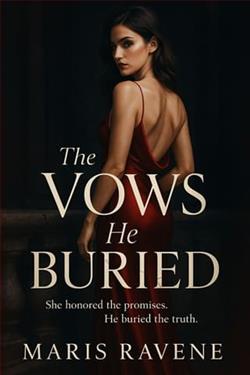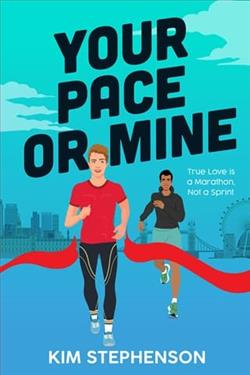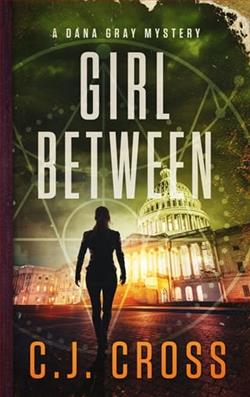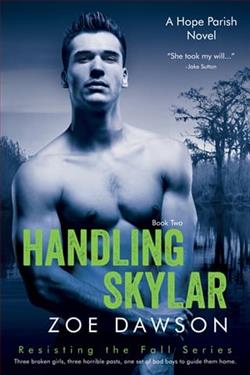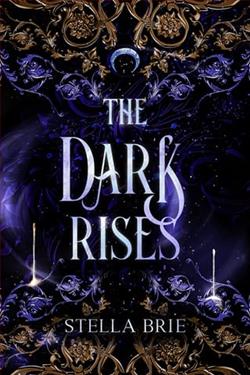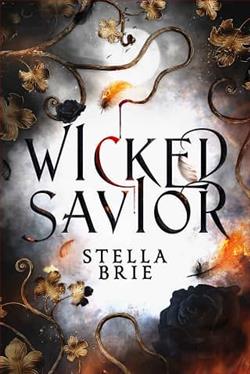Page 4 of Playworld
“Fast.”
—
Evening had descended during our drive, the pines black against the night-blue sky. Upon our return to the Barrs’ house—the very moment Sam cut the engine—the front door opened, throwing on the driveway’s gravel the interior’s yellow light and the party’s din. Though the foyer was crowded, the first person I saw was Naomi.
She kissed her husband and asked my father and brother in passing if they’d enjoyed the drive, but when we faced each other, I had the distinct impression she’d been on the lookout for me, because she gave a slight start when we made eye contact, and then her expression softened into something more than affection. I hadn’t given her a thought since we’d parted. My attempt to kiss her earlier had been so spontaneous, and so impulsive, it seemed to have been perpetrated by an impostor; it had been merely an opportunity for me to flex a familiar muscle, to perform for her, for someone—anyone—and been thereafter forgotten at the end of the scene. Now, however, I suddenly felt ashamed by my behavior. This was coupled with a terrifying realization that I’d won her fondness, but for no good reason. In response, I hurried inside—I spotted Mom and called to her, as if excited to tell her about what we’d just done—though not quickly enough that I failed to notice Naomi’s head tilt ever so slightly when I passed, her expression at once plaintive and perplexed.
My subsequent efforts to avoid her were not successful. Every time I looked up, she was there, waiting to catch my eye and remind me of what had transpired between us. It didn’t matter where I positioned myself. Even later, when my father sat down at the Barrs’ grand piano and played, when the chords rippled out and silenced conversations one by one—a hypnotic, softening effect as the guests, having suddenly noticed something very beautiful was occurring, turned to give him their full attention—I spotted her staring at me. I feigned devotion, smiling appreciatively at the ghosts of my father’s hands reflected on the piano’s fallboard, which was as black as the faces of the Bentley’s dials. The parallax view of his hands, at once crablike and blurred, made his virtuosity seem effortless and all the more remarkable. I knew that she knew I wasn’t fooling her, or myself.
Realizing all eyes were on him, my father glanced over his shoulder, raising his brows and then jerking his head back as if startled, a gesture that elicited laughs from nearly everyone, even my mother, who listened with one palm pressed to her chest, a wineglass cradled in the other. When my father performed, her expression was always an odd combination of admiration and melancholy, as if the melody reminded her of something from long ago, or a place to which you were sure, upon leaving, you’d never return. Sam Shah stood at my mother’s side. He leaned toward her in that stiff-backed way of his, bending from the hips, his hands clasped behind his back, and said something, whether flattering or witty, I couldn’t be sure, because she barely acknowledged his remark, as if to underscore that my father had the stage, and the time had come for everyone in the audience to please be silent. Elliott and Lynn joined Dad by the piano, and in a moment so perfect it seemed rehearsed, my father gestured toward the couple with an outstretched arm, the guests applauded, and, returning both hands to the keys, he sang in their honor:
If we only have love
Then tomorrow will dawn
And the days of our years
Will rise on that morn
If we only have love
To embrace without fears
We will kiss with our eyes
We will sleep without tears
If we only have love
With our arms open wide
Then the young and the old
Will stand at our side
He played for another several verses and, upon concluding, stood to bow as the gathered guests applauded. Naomi began to walk in my direction but stopped when Al Moretti, tapping a spoon to his highball, seized the chance to make a toast.
“Ladies and gentlemen,” he said, “you’re gonna have to indulge me for a sec, ’cause I gotta speak from the heart.”
A hairdresser and part-time social worker, Al liked to describe himself as a “Jew-Woppie.” He was my parents’ close friend and another of Elliott’s patients. Tonight he was wearing an orange shirt unbuttoned to the sternum, tight white pants, a white leather belt and shoes, both with gold buckles. His complexion, always red, now appeared closer to boiled. He had that familiar Queens inflection and idiom, the direct object of his sentences occasionally preceding their verb like a caboose pulling a train.
“Elliott, Lynn, this speech I didn’t carefully prepare or nothing, so please bear with. I know I’m not alone in saying that when we first met, I was a fuckingmess.” Everyone whooped at this, including Al. “But the pair of you”—he draped his arms around their necks and pulled them in to his sides—“you picked me up and took me under your wing. Ten years ago, Elliott, we started therapy together, and what can I say? With your able hands you wrung every drop ofmishegossout of my mind, while Lynn, you filled me up with a mother’s milk.” He took a moment to blow his nose with his cocktail napkin, stuffing it in his back pocket afterward. “Just the other day, Elliott, you said something that was such genius I thought about it on the whole train back to Astoria. ‘Friends,’ you said, ‘are the family you get to choose.’ But you’re the family that choseus.Sothank you for that and for sharing this blessed day. May the Lord God see fit you enjoy many more.” He raised his glass. “You’re fucking gorgeous.”
Everyone else’s glasses went up. But before a single guest could say “mazel tov” or Naomi could make her way to me, I’d escaped into Elliott and Lynn’s room, where I found Oren. He’d managed to fix the television and was watchingCharlie’s Angels.
—
When any evening at the Barrs’ home concluded and the guests were seen off, a core group that included Al Moretti and my parents always remained behind. It made me feel like we were special. If their son, Matthew, was in attendance, as well as their daughter, Deborah, and her husband, Eli, they too could be expected to hang back—it made all of us feel like we were nearly family. Imagine my surprise, then, when Oren and I emerged from the bedroom, and I noticed Sam and Naomi had been welcomed into this cohort. The grown-ups, still talking, tarried at the front door. Elliott and Sam were arguing heatedly. “If it moves,” Sam said, “they tax it. If it keeps moving, they regulate it. And if it stops moving, they subsidize it. But not Reagan, I guarantee it.” In response to which Elliott shook his head and said, “The only authentic form of trickle-down economics is the president’s character.” And then I noticed Naomi wave my parents over to her.
“Thatboyof yours,” she said, either mischievously or vindictively, I couldn’t tell, and then shot me a look that promised revenge. She gathered my parents into a huddle, resting her hands on their shoulders as she whispered to them, which built toward, I was sure, the embarrassing conclusion of my attempted kiss, upon which they all burst out laughing. “I mean,” Naomi said, and touched her fingernails to her chest, rolling her eyes, “Inevah.”
After evenings such as these, during the drive home, my parents often asked me, “Well, Griffin, what did you think?” Both considered me perceptive, they regularly told me as much, and I found I could intensify this effect—could get them to exchange that knowing look—by withholding half of what I’d noticed or framing my observations as questions. The trick was to be just off point. “How come everyone checks with Elliott after they say something?” I might ask, or “Do you think Al’s laugh sounded lonely?” But I dreaded this discussion now, for I wassure Naomi had exposed me, and I wanted to avoid the topic at all costs, especially in front of Oren, lest I combust with shame.
Surprisingly, it was he who broached the subject. “Why does Mr. Shah think lower taxes will save the country?”
“Because it’s an election year,” Mom said. “And for some people politics is only about how much you pay the government.”
“He just wants to keep more of the money he makes,” Dad added.








